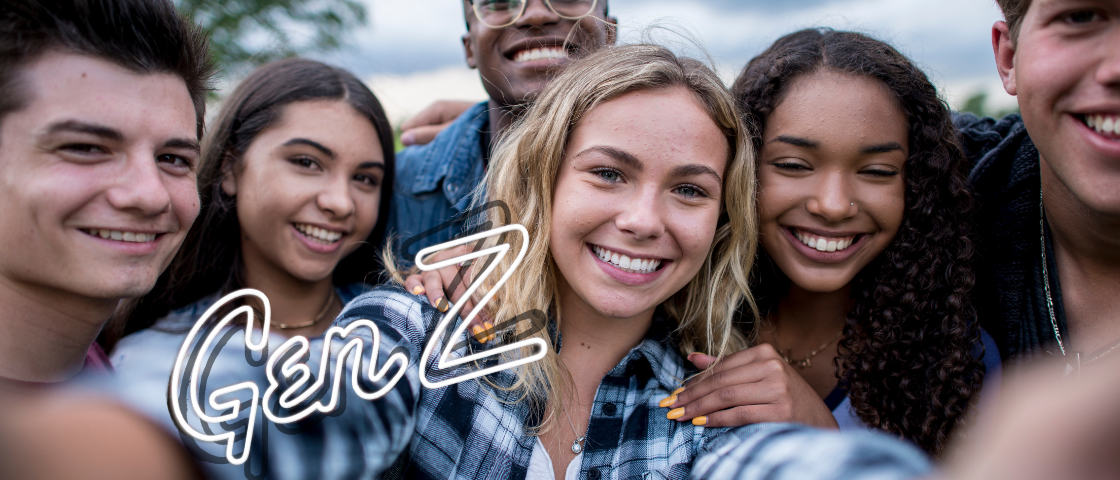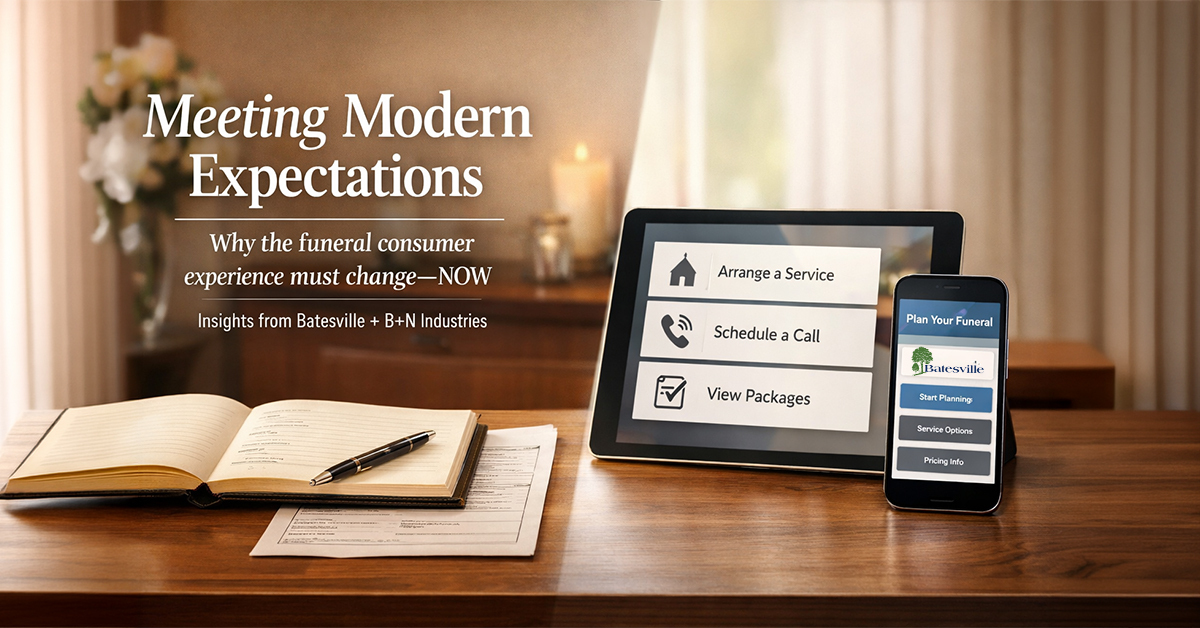NFDA Generational Survey: Why Does Gen Z Prefer Burial, and What Does It Mean For You?
On July 9, 2024, the National Funeral Directors Association (NFDA) released the results of a first-of-its-kind survey conducted two months earlier. These results offered valuable insight into the perspectives of death and dying held by each American adult generation, from Generation Z (who were born between 1995 and 2012) to Baby Boomers (born between 1946 and 1964). The most surprising finding? There’s a new generation out there who might be keen on going “old school” when it comes to their disposition.
“Defining” the generations
Millennials — those supposedly (but not really) entitled, lazy, and spoiled children who were born between 1980 and 1994 — have been the focus of the generational studies performed over the last two or decades. It makes sense, though, as they seemed to be on a completely different plane from the previous generation, Generation X — the flexible, resilient, latch-key kids born from 1965 to 1979.
But then came Generation Z. Born with an iPhone in their tiny hands, these folks are the most racially and ethnically diverse of any adult generation, and they’re on track to be the most well-educated, as well. They care about things like climate change and sustainability, crave authenticity, and demand social justice. Or so the expert researchers like Pew, Stanford, and Deloitte say — although it’s difficult to pin particular traits on every single member of any group.
One Gen Z trait that comes up in survey after survey, though, is their tendency to question, push back on, or completely turn against cultural norms — and that trait certainly showed itself in that generation’s responses to the NFDA survey.
Reversing cremation?
According to the NFDA survey of 2,000 adults, most Americans prefer cremation as their final form of disposition — this includes 66% of Baby Boomers, 50% of Gen X, and 42% of Millennials. This tracks with the cremation rate forecast published by the NFDA in their 2023 Cremation and Burial Report, which predicts an increase to an 81.4% cremation rate by 2045. This is similar to the data gathered by the Cremation Association of North America (CANA) which finds that the U.S. cremation rate could exceed 75% as early as 2038.
However, even CANA’s statistics indicate that cremation rate growth is in a deceleration period; it’s still growing, but just at a slower rate. Despite this slowdown, CANA doesn’t expect that rate to reverse.
The Gen Z respondents to NFDA’s survey may beg to differ, as they are the only generation to indicate traditional burial as their top preference for their final disposition. While only 37% of Gen Z survey-takers said they’d choose this method, this is higher than the percentage who chose cremation.
Could these responses signal a trend toward reversing the upward trending of America’s cremation rate? Maybe so. Even the NFDA’s press release teases this potential phenomenon with the headline, “Gen Z Prefers Burial Over Cremation, Reversing Decades of Preferences Trending Toward Cremation.”
An understandable response
So what has caused this unusual and, perhaps, unexpected change? Connecting Directors reached out to deathcare’s expert on generational issues, Antonio Green. Green is a fourth-generation funeral director, co-owner of 105-year-old family-owned James H. Cole Home for Funerals in Detroit, Michigan, and the author of Talk to Me: Understanding the Millennial Mindset, a wonderful guide for any professional working in an intergenerational setting. He offered some interesting insight into why Generation Z might be tiring of cremation and seeking other alternatives.
“They’ve had family members who were cremated and they’ve probably got urns in the house from the past, like a grandparent or a great-grandparent,” Green suggests. “Families have these collections of ashes at the house that they have for family members. And they’re wondering, ‘What are we going to do with these? Because I don’t want them.’”
Green says that this issue may lead them to think ahead to what will happen when their parents pass away, or when they themselves die. They don’t want their remains to become the following generation’s burden. Additionally, they want to be properly memorialized, and that doesn’t just apply to their permanent placement; it’s important for their services, too.
“Also, the suicide rate among adolescents and young adults has gone up over 50% since 2010, and this generation has actually had to attend more services for friends than any other generation ever has,” Green says. “And a lot of these were probably memorial services that didn’t have a viewing, and they’re probably thinking, ‘It would have been really nice to see my friend one last time.’ They’re preferring more traditional services and burial; they probably see the value early on of needing to have that closure.”
More Gen Z responses
Green’s assessment aligns quite well with the other answers Gen Z respondents provided in the NFDA survey — especially the finding that 68% of Gen Z strongly agree it is important to commemorate the life of a loved one with a funeral or memorial service, compared to only 44% of Boomers.
This bodes well for deathcare professionals, as does the survey insight that “younger generations including Gen Z and Millennials are even more likely than Baby Boomers to think of funeral directors as important, valuable, experts in relevant products and services and trustworthy.”
Back in 2019, at least one outlet, the Washington Examiner, predicted that “Millennials and Gen Z might kill yet another industry: Traditional funeral homes.” Citing these generations’ need for “more creative and physical ways to be remembered,” the article envisioned a “slow death” for the funeral industry if it refused to adapt to “greener” options like organic burial pods.
Interestingly, the article seemed to accurately foresee Gen Z’s slow turn against cremation, writing that while “cremation continues to pick up steam with older folks, young people are questioning how ‘natural’ it is,” as “according to some estimates, the amount of energy required to cremate a body would power a 500-mile road trip.”
Other deathcare experts, such as those with the International College of Professional Celebrants, have also commented that Gen Z’s “desire for authenticity and social justice” could “lead them to seek more meaningful and eco-conscious approaches to death, such as natural burials.”
Time to shine
Natural burials and the relatively new (but rapidly growing) disposition method of natural organic reduction certainly make sense as logical options for the eco-conscious members of Generation Z. Fortunately, today’s deathcare professionals can help them arrange these dispositions, as well as proper memorial services.
“As consumer preferences evolve, funeral directors are tasked with ensuring the services and support they provide evolve right alongside them,” said Dutch Nie, President of the National Funeral Directors Association, in the NFDA’s press release. “We know Gen Z is both community-minded and interested in breaking cultural norms. This creates an opportunity for us to showcase the value of funerals and options available to create a truly custom service that honors the life of a loved one.”




